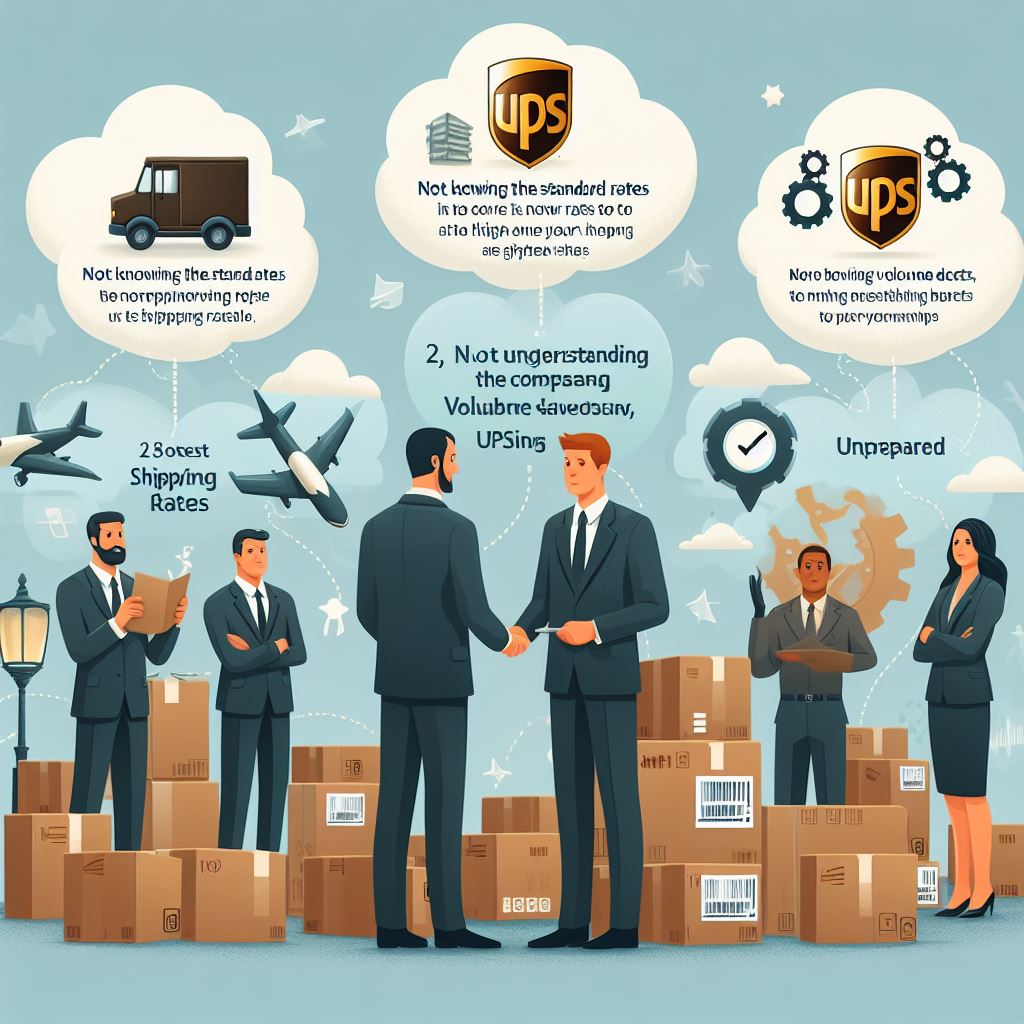Lack of Research and Preparation
Entering negotiations with UPS without thorough research is akin to sailing without a compass. Understanding UPS’s pricing structure is crucial. It’s not just about the basic rates; you need to consider surcharges, seasonal changes, and special rates for certain volumes or destinations. Equally important is knowing your shipping profile – volume, frequency, and typical package sizes. This data is your negotiation currency, making preparation a non-negotiable first step.
Neglecting the Impact of Shipping Habits
Your shipping habits are a critical factor in negotiating rates with UPS. For instance, if your business frequently ships heavy packages, this should be a focal point in your negotiations. However, if you overlook this and focus solely on small parcel rates, you might miss out on potential savings. Adjusting your shipping habits, such as consolidating shipments or tweaking delivery timelines, can also be a strategic move to secure better rates.
Overlooking the Competition
In the world of logistics, knowledge is power. Being aware of the competition’s rates and services gives you a substantial edge. If you can demonstrate that a competitor offers better rates for similar services, you’re in a stronger position to negotiate. Don’t hesitate to bring this information into discussions with UPS. Remember, UPS is aware of its competition and is often willing to adjust rates to retain valuable customers.
Failing to Understand Contractual Terms
A common pitfall in UPS rate negotiation is not fully understanding the contractual terms and conditions. This oversight can lead to accepting rates or terms that aren’t in your best interest. Pay close attention to minimum volume commitments, rate adjustment clauses, and termination fees. These details, if overlooked, can bind you to less favorable conditions, negating the benefits of negotiated lower rates.
Not Utilizing Professional Help
Engaging professional services like Betachon Freight Auditing can be a game-changer in UPS rate negotiations. These experts bring a wealth of experience, industry insights, and advanced analytical tools to the table. They understand the intricacies of UPS’s pricing strategy and can negotiate more effectively on your behalf. By leveraging their expertise, businesses often find themselves securing far better rates and terms than they could achieve independently.
Ignoring the Fine Print
The fine print in UPS contracts can hold crucial details that impact your shipping costs. It’s imperative to scrutinize every aspect of the contract, paying close attention to clauses about rate increases, fuel surcharges, and service level agreements. These seemingly minor details can significantly affect your shipping expenses. Ensuring that you understand every clause thoroughly, or seeking expert advice on the matter, can save your business from unforeseen expenses.
Neglecting Long-Term Relationships
Building a lasting relationship with UPS is vital. While negotiating for better rates is important, maintaining a positive, ongoing relationship with your carrier can lead to more benefits over time. This includes potentially better rates in the future, more flexible services, and quicker resolutions to logistical challenges. Approach negotiations not just as a transaction but as a step in building a long-term partnership.
FAQs on UPS Rate Negotiation
Q: What is the most important factor in negotiating with UPS? A: Understanding your own shipping needs and how they align with UPS’s services is crucial.
Q: Can small businesses negotiate effectively with UPS? A: Yes, but it often helps to engage a professional negotiator who can leverage expertise and experience.
Q: How often should I renegotiate my rates with UPS? A: Regularly reviewing and negotiating your rates, ideally annually, ensures that you are always getting the best deal.
Conclusion
Negotiating UPS rates is an art that requires understanding, preparation, and attention to detail. Avoiding common mistakes can lead to significant savings and more favorable terms for your business. Remember, it’s not just about getting lower rates, but about building a mutually beneficial relationship with UPS. With the right approach, negotiation can become a key strategy in your business’s logistics management, leading to lasting financial and operational benefits.
